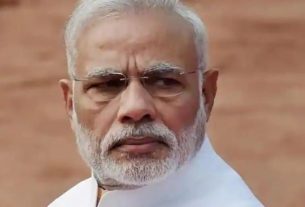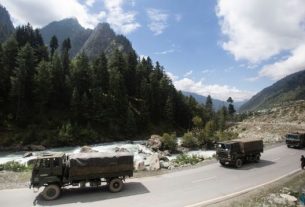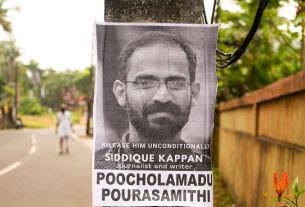New Delhi — The Congress Party, riding high after its improved performance in the recent Lok Sabha elections, looks set to end the year on a high note, according to exit poll projections. The party appears poised to secure a decisive victory in Haryana and could form a coalition government in Jammu and Kashmir, ending the Bharatiya Janata Party’s (BJP) decade-long dominance in these crucial regions.
An aggregate of seven exit polls predicts that the Congress will secure a comfortable majority in Haryana, claiming 55 of the state’s 90 assembly seats. This would easily surpass the 45-seat majority threshold and mark a major political shift after 10 years of BJP rule. The result also signals a significant setback for the BJP, which is projected to win only 27 seats in Haryana.
In Jammu and Kashmir, where elections were held after a decade and following a contentious delimitation process, the Congress-National Conference (NC) alliance is expected to lead the race but fall just short of an outright majority. Exit polls suggest the alliance will secure 43 of the 90 assembly seats—three shy of the 46 needed for a majority. This leaves room for potential coalition negotiations, as the state appears headed for a fractured mandate.
Potential Hung Assembly in Jammu and Kashmir
In Jammu and Kashmir, a fractured verdict could open the door for complex political maneuvering. With the BJP forecasted to win 26 seats, far below the majority mark, it may struggle to form alliances with smaller parties or independents to close the gap. Former ally Mehbooba Mufti’s Peoples Democratic Party (PDP) is projected to win seven seats, positioning itself as a potential kingmaker. However, the PDP has ruled out any alliance with the BJP, focusing instead on a “secular” coalition and hoping to build bridges with the Congress-NC alliance.
Mehbooba Mufti has previously floated the possibility of cooperation with Congress and the NC, provided they agree to the PDP’s platform, which includes a resolution to the Kashmir issue and the reopening of cross-border routes. During the release of her party’s manifesto, Mufti even suggested she would step aside from the electoral race if the Congress-NC bloc endorsed the PDP’s vision. “If the Congress and NC are ready to accept our agenda, we will tell them to contest all the seats, and we will support them,” she said.
However, longstanding political rivalries between the NC and PDP could complicate any potential coalition talks. Both parties have traditionally vied for influence in the Kashmir Valley, and deep-seated animosities may hinder any power-sharing arrangement, despite their shared goals as part of the Gupkar Alliance, which is pushing for the restoration of statehood to Jammu and Kashmir.
The region has been under President’s rule since the BJP-PDP coalition collapsed in 2018. In 2019, the state was bifurcated into two Union Territories—a move the BJP has vowed to reverse during its third term in national office. The question now is whether the Congress-NC alliance will reach out to the PDP to forge a united front or if the historic rift between the NC and PDP will keep them apart.
BJP Faces Tough Contest in Haryana
In Haryana, the BJP faces an uphill battle to retain power. Exit polls indicate that the party could end up with only 27 seats—its worst performance in a decade. One exit poll conducted by Jist-TIF Research offered a glimmer of hope for the BJP, suggesting it could win up to 37 seats, but even that would fall short of a majority.
Meanwhile, regional parties appear to have made little impact. The Indian National Lok Dal (INLD), led by Abhay Chautala, is expected to win just two seats, while the BJP’s former ally, the Jannayak Janata Party (JJP), may only secure one. Arvind Kejriwal’s Aam Aadmi Party (AAP), despite governing in neighboring Delhi and Punjab, is not projected to win any seats in Haryana, further cementing Congress’s dominance in the state.
A Critical Moment in Both Regions
With the official vote count scheduled for October 8, the stage is set for a critical moment in both Haryana and Jammu and Kashmir. While exit polls have been wrong before, the projections indicate that Congress is on the cusp of a political resurgence. Should these numbers hold, the party could not only unseat the BJP in Haryana but also lead the formation of a government in Jammu and Kashmir for the first time in a decade, marking a dramatic political shift in both regions.
As the final tally approaches, all eyes will be on the negotiations and alliances that could shape the political landscape for years to come.





